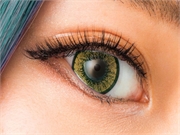SUNDAY, Oct. 25, 2020 (HealthDay News) — Halloween is risky enough this year with the coronavirus pandemic, so don’t risk your vision as well by wearing costume contact lenses, the American Academy of Ophthalmology (AAO) says.
Costume contact lens packaging that claims “one-size-fits-all” or “no need to see an eye doctor” is false, the academy said.
Poorly fitted contact lenses can scrape the cornea (the outer layer of the eye), making the eye more vulnerable to bacteria and viruses that can cause infections.
People who buy contacts without a prescription have a 16-fold increased risk of developing an eye infection, research shows.
“As we follow new precautions to keep our families safe in this abnormal year, it’s important not to forget about the normal hazards that can occur during Halloween,” Dr. Dianna Seldomridge, a clinical spokesperson for the AAO, said in an academy news release. “Whatever you plan, please follow these tips to protect your eyes this Halloween.”
- Get an Rx. Buy only U.S. Food and Drug Administration-approved contact lenses. Color contacts or other decorative lenses are sometimes sold at corner shops or online, but such sales are illegal. Contact lenses must be bought with a doctor’s prescription.
- Practice good hygiene. Wash your hands before putting your contacts in or touching the skin around your eye. Cleaning and disinfecting your contact lenses as instructed minimizes the risk of an eye infection. See an ophthalmologist immediately if you notice any swelling, redness, pain or discharge from the eye when using eye makeup or contacts.
- Watch the clock. Don’t wear costume contact lenses longer than four or five hours. The dye in them can restrict oxygen flow to the cornea. Never sleep in contact lenses.
- Keep them to yourself. Never share contact lenses or eye makeup. Doing so can spread germs and bacteria, which can cause infections.
- Take safety precautions. If you’re decorating for Halloween, wear protective eyewear.
More information
The U.S. Centers for Disease Control and Prevention has more on decorative contact lenses.
Copyright © 2025 HealthDay. All rights reserved.

